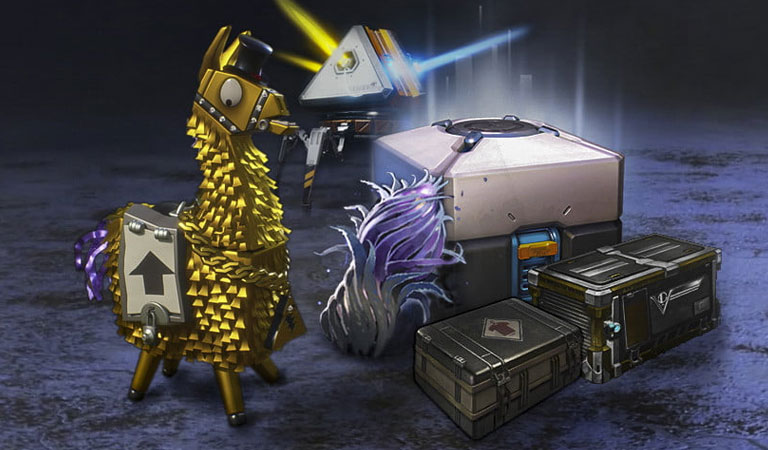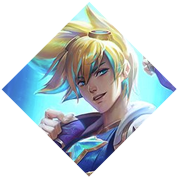
If you’ve been playing any modern games recently, then the chances are you’ve seen loot boxes at some point. These loot boxes promise gamers incredible items to show off to their in-game friends, all for a price of course!
With a roll of the computer-generated dice, gamers can get some of the most sought after items in the game, or waste their money and be left with scraps. Since most loot boxes are down to luck and chance, many parents have expressed their concerns that it promotes underage gambling.
Now that more and more companies are adding loot boxes to their games which are aimed at young children, these loot boxes have also caught the eye of numerous regulators. These regulators are pushing for stricter laws on loot boxes, while games companies are fighting to keep them.
With the line between gambling and gaming being thinner than ever, when do loot boxes become gambling?
Before we explore the legalities and classifications of loot boxes, what exactly are they and why are they so darn popular?

Loot boxes come in many different shapes and sizes, but all have several characteristics in common. The most common characteristic is that all loot boxes cost money, although many games give some boxes away for free to players. These freebies are so that players can experience loot boxes first hand and hopefully go on to purchase more from the store.
As of writing this article, there are currently around 77 game titles which have some kind of loot box system within the game. Popular games with loot boxes include Overwatch, Destiny 2, Battlefront II, FIFA 19, Hearthstone and DoTA 2.
Although the rewards and items from loot boxes can vary from game to game, the premise behind loot boxes is as follows.
A player purchases a loot box from the store in the hopes of receiving a rare in-game item or skin. In many games, the only way to obtain these rare items is to either buy a loot box or spend countless hours unlocking it within the game. Although some games give out rare items that have an effect on a player’s gameplay, many other game’s loot box systems are purely cosmetic and only in the form of skins.
If a player is lucky, then they will receive a super rare item or skin from their loot box which will save them a lot of time and money. On the other hand, with every loot box, there is also the chance that the player won’t receive anything of value and be left with digital trash.
It’s this roll of the dice which has a lot of regulators and parents up in arms about the legality and ethics of loot boxes. Not only does it encourage players to spend more money and “risk it” for digital items, but loot boxes have also been compared to playing online slots.
Since the dawn of loot boxes, many games have implemented them with various success, but there’s only one goal with loot boxes.
Loot boxes solely exist to extract as much money from players as possible. As mentioned before, many games only implement cosmetic loot boxes which allow players to unlock rare skins only. Although they don’t give any advantage in-game compared to players who don’t have them, many players still want to collect them all to improve their social status.
If a player wants a rare in-game skin then video game developers have two options. Allow players to buy rare skins from their in-game store (such as League of Legends) or let players unlock it from their loot boxes (such as Overwatch).
In the long run, the games company is more likely to make more money from selling loot boxes compared to letting players buy the skin outright. This is because there is always the chance that in some loot boxes players won’t get anything of value. This means a $30 in-game skin will usually end up costing players a lot more when obtained from loot boxes.
However, although the maths and logic are simple, from the player’s perspective, there is also a small glimmer of hope that they will get the skin cheaper. Since every loot box has a chance of having the item in it, some lucky players might obtain it on opening their first loot box, thus saving them money. It’s this glimmer of hope which is often so attractive for players and children.
Loot boxes have been highly successful for many companies including Blizzard who develop Overwatch. In fact, recently Overwatch hit the $1 billion milestone from in-game purchases thanks to their loot boxes. As you can see, loot boxes are a huge market and with so much money to be made, it’s clear why developers and publishers want to fight to keep them in games.

From the explanation of loot boxes above, it’s clear that they could encourage some gambling-like behavior in players. And considering most of the players who play these games are under 21, these loot boxes have attracted investigations from numerous regulators worldwide.
One of the most significant regulators that have investigated loot boxes so far is the Belgium Gaming Commission who recently ruled loot boxes are illegal. In April 2018, the commission ruled that loot boxes are in violation of Belgian gambling legislation and effectively banned them. With fines of up to €800,000 and 5 years in prison for publishers, many companies including EA games have removed loot boxes from their games including FIFA.
However, according to the game's publisher EA Games, who has released multiple loot boxes in their Battlefront and FIFA game series, loot boxes aren’t gambling, they’re just like a Kinder Egg. For those of you that don’t know what a Kinder Egg is, Kinder Eggs are chocolate treats for children that contain hidden surprises inside. Before purchasing a Kinder Egg you don’t know what surprise you are going to get, but you are guaranteed one.
Although it’s a solid argument as to why loot boxes should be kept legal, not everyone agrees.
It’s not just regulators and parents who think loot boxes should be classed as gambling. In a recent study published in the Addictive Behaviors journal, 68.1% of adults believed loot boxes were gambling, while 86.2% of the student group said they were gambling. This also raises the question, if so many of the student group think loot boxes are gambling, then why are they still buying them?

At this moment in time, loot boxes seem to be the goto business model for many games developers and publishers. Considering they have already been around for a while and are proven to work, it’s very unlikely any games will be removing them soon unless new laws and legislation come in.
In a recent announcement by the UK Gambling Commission, they confirmed that in their eyes, loot boxes aren’t gambling and they wouldn’t be pursuing any legal action. Yet with a new loot box bill on the horizon in the USA, there could be a big shakeup in loot boxes and how they operate in games. This may include forcing games companies to release their loot box percentage rates or introducing some kind of parental lock. Whatever the case, the debate about loot boxes is just warming up and there’s a lot that’s bound to change in the future.
